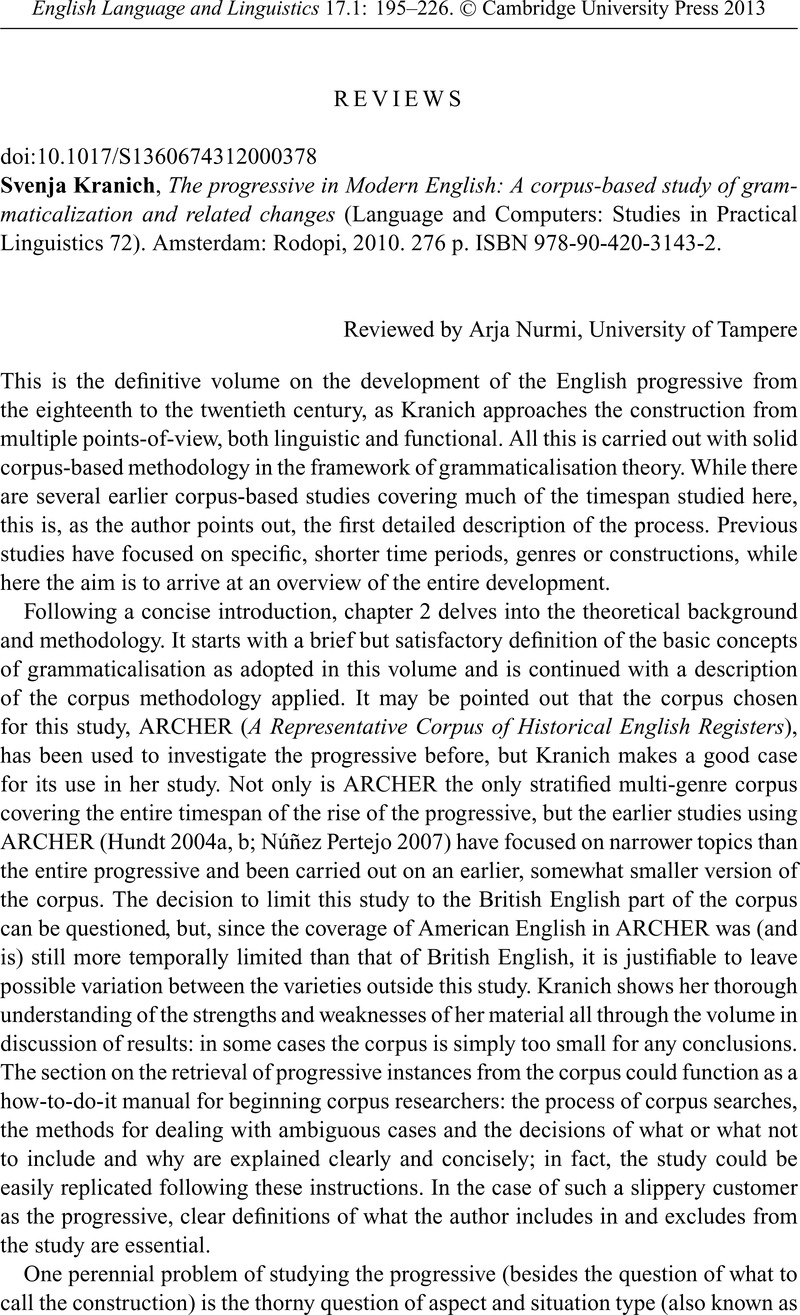No CrossRef data available.
Article contents
Svenja Kranich, The progressive in Modern English: A corpus-based study of grammaticalization and related changes (Language and Computers: Studies in Practical Linguistics 72). Amsterdam: Rodopi, 2010. 276 p. ISBN 978-90-420-3143-2.
Published online by Cambridge University Press: 11 February 2013
Abstract
An abstract is not available for this content so a preview has been provided. Please use the Get access link above for information on how to access this content.

- Type
- Reviews
- Information
- Copyright
- Copyright © Cambridge University Press 2013
References
Hundt, Marianne. 2004a. The passival and the progressive passive: A case study of layering in the English aspect and voice system. In Lindquist, Hans & Mair, Christian (eds.), Corpus approaches to grammaticalization in English, 79–120. Amsterdam: John Benjamins.CrossRefGoogle Scholar
Hundt, Marianne. 2004b. Animacy, agentivity, and the spread of the progressive in Modern English. English Language and Linguistics 8, 47–69.Google Scholar
Ljung, Magnus. 1980. Reflections on the English progressive. Gothenburg: Acta Universitatis Gothoburgensis.Google Scholar
Núñez Pertejo, Paloma. 2007. Aspects of the use of the progressive in the 18th century. In Pérez-Guerra, Javier, González-Álvarez, Dolores, Bueno-Alonso, Jorge L. & Rama-Martínez, Esperanza (eds.), ‘Of varying language and opposing creed’: New insights into Late Modern English, 359–82. Bern: Peter Lang.Google Scholar
Smitterberg, Erik. 2005. The progressive in 19th-century English: A process of integration. Amsterdam: Rodopi.Google Scholar
Strang, Barbara. 1982. Some aspects of the history of the be + ing construction. In Anderson, John A. (ed.), Language form and linguistic variation: Papers dedicated to Angus McIntosh, 427–74. Amsterdam: John Benjamins.CrossRefGoogle Scholar


